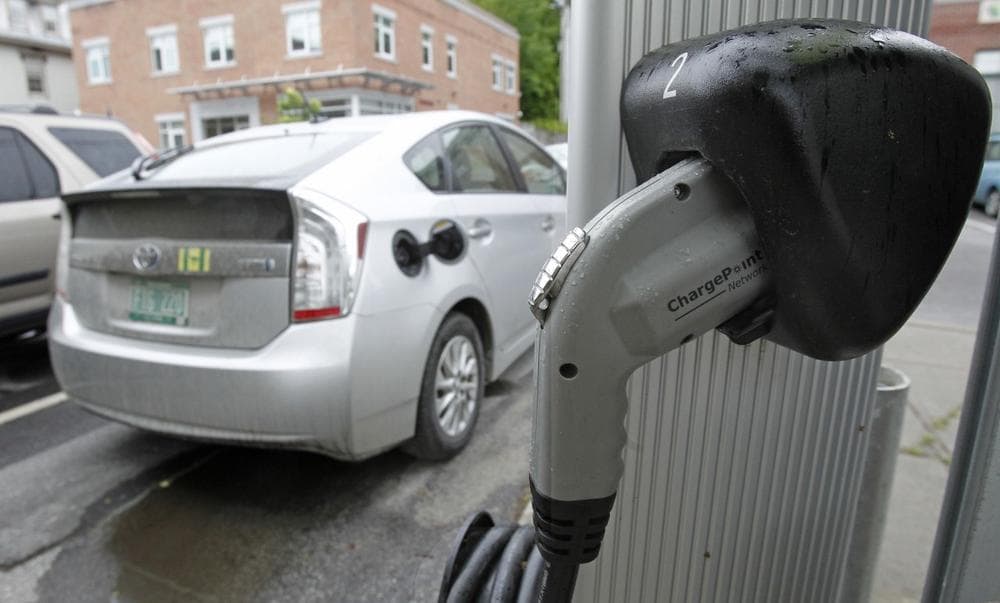Advertisement
Want More Electric Cars? First We Need More Places To Charge Them

Electric cars have been making quite a buzz recently.
President Biden has pledged to replace the entire U.S. federal fleet with electric vehicles. General Motors says it will sell only zero-emission vehicles – i.e., electric ones – by 2035. And the Massachusetts legislature has again sent a a sweeping climate bill to Gov. Charlie Baker, shooting for net-zero carbon emissions by mid-century and a 50% reduction in emissions by 2030. Baker says that to hit that 2030 mark, the state will need to get about 1.1 million electric vehicles on the road.
But getting people to embrace electric cars means dealing with “range anxiety” – a person's worry that their car may not have enough charge to reach their destination. There's an easy cure: more changing stations. And while experts have yet to agree on the magic number of charging stations that will put people's minds at ease, a new study from MIT points out the best places to put them: on residential streets, highways, and at workplaces.
“For many people, electric cars are still new,” says study co-author Jessika Trancik, Associate Professor of Energy Studies at MIT. “They may feel anxious if they can’t envision where they’re going to charge.”
Trancik’s team gathered GPS tracking data to follow the typical daily and yearly movements of cars across the U.S.
Their findings, published in the journal Nature Energy, identified locations where new charging stations could have the most impact and increase the adoption of electric cars.
“It's important to make sure that chargers are placed where people can charge without having to delay their activities,” Trancik says.
She says the first first priority should be putting chargers near homes since that's where people tend to stop for the longest time. But because not everyone has a garage or driveway, this means constructing chargers along residential streets as well.
The study also advised placing charging stations along highways and at workplaces.
A fully charged electric vehicle will take care of most drivers’ needs on most days, Trancik says. But the possibility of occasional long trips can be a deal breaker for potential electric car buyers, who are wary of getting stranded far from home.
For those occasional long trips, the study also recommends making traditional gas-powered vehicles more easily available for short-term rental.
“Even though those days are relatively infrequent, if your vehicle can’t deliver on those days you may not buy it,” says Cutler Cleveland, a professor of Earth and Environment at Boston University who was not involved with the MIT study.
Cleveland says the MIT researchers “did a nice job of combining real world data with traditional modeling and really focusing on consumer behavior.”
Trancik expects some type of public-private partnership will fund the new charging stations.
“Businesses would install and operate the chargers in most cases, but government policies will be critical in accelerating innovation in this space and incentivizing a roll-out that emphasizes equity and supports the energy system as a whole,” she wrote in an email.
Government mandates could also help ensure that charging stations are not set up exclusively in wealthy neighborhoods, says Evan Horowitz, executive director for the Center for State Policy Analysis at Tufts University. The more difficult problem, Horowitz says, could be how to actually distribute electric vehicles equitably.
While the lifetime cost of electric vehicles is comparable to that of a regular gasoline powered vehicle, the upfront cost is higher, Horowitz says. This means "buying electric" works better for people who have the resources to invest upfront, “and that tends not to be poor people or people in communities of color.”